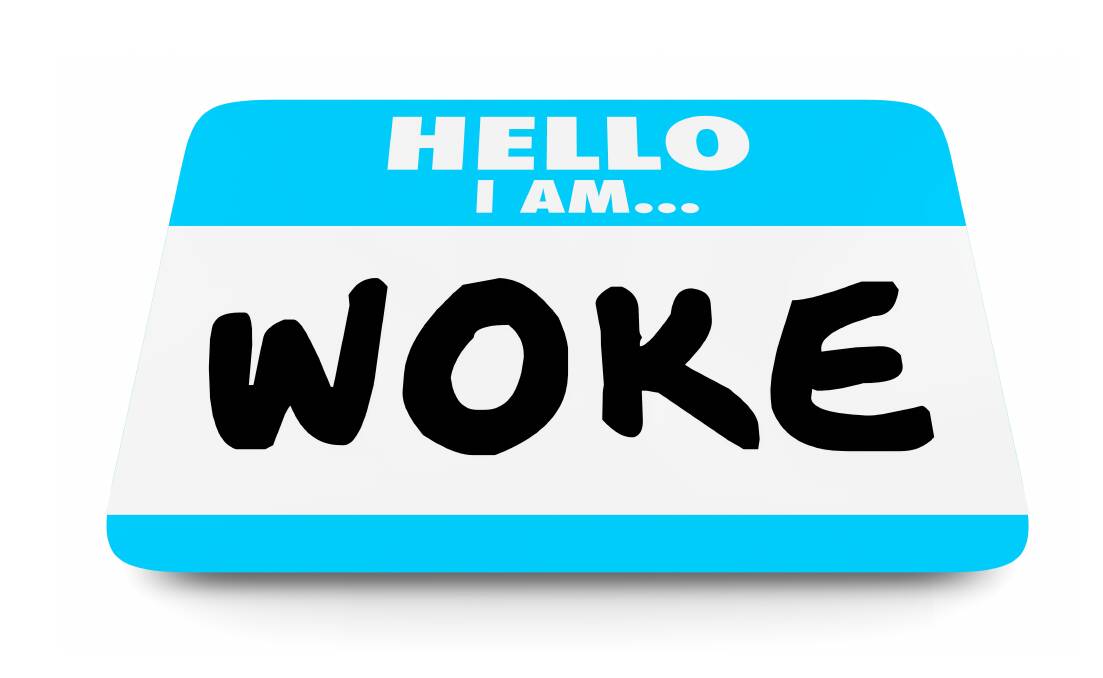Many public figures have gotten woke to "woke". And they don't like it.
Subscribe now for unlimited access.
or signup to continue reading
Nationals leader Michael McCormack condemned the "ravings of some pure, enlightened and woke capital-city greenies" who linked the bushfires to climate change.

Barack Obama has lectured young people to "get over" their social media posturing and "this idea of purity and you're never compromised and you're politically 'woke'". "That's not activism" he said. "That's not bringing about change."
For them, to be "woke" is to be vain, sanctimonious, dangerously naive and young.
But do they really know what "woke" means, and what it means to many young people nowadays?
Getting "woke" originated with the African-American civil rights movement. It was about becoming aware of systemic racial injustice and then committing to making others aware of that stark-yet-unacknowledged reality.
African-American writer James Baldwin pointed out that the problem with segregation is not just being blind to how others live, but not even having the desire to see.
Activists knew that established power would deny, discredit, and punish its rivals, and when that didn't work it would try to co-opt and corrupt them. They knew that it was convenient to exhibit a pretence of wokeness without its substance. And so "staying woke" was just as critical and difficult as "getting woke".
Indeed, the term embodies a mature self-awareness and appreciation of how the status quo remakes and reasserts itself when challenged.
To be truly woke, then, is to be conscious of the harsh realities of radical struggle, and to nonetheless commit to it.
For us, "woke" is ACT Young Australian of the Year Madeline Diamond, who used her body as a banner by painting "Climate Justice" on her chest at this year's Awards Ceremony.
She has since disclosed that "at high school ... I had no idea what to do with myself ... I didn't realise you could have a say and use your voice ... I was quite lost. And then ... I joined the Australian Youth Climate Coalition (AYCC)."
She went on to establish her own group, Trash Gather, which brings together young people each month to collect rubbish around Canberra.
Before the Awards Ceremony, and as flames engulfed much of eastern Australia, Madeline attended a morning tea at The Lodge wearing a T-shirt that read "No more waiting on climate action".
"Hey, how's it going?" she said to the PM over a cuppa. "I've been nominated for my work in environmental protection."
"Oh that's really nice," was all Scott Morrison could say before moving on.
The popular retort "OK boomer" is a way of returning a smidgen of the condescending and dismissive "Oh that's really nice" that young people so often encounter.
For us, the key challenge is not getting woke, but rather finding a way to tackle the climate crisis together.
To this end, it's encouraging to see corporations jumping aboard the woke wagon, recognising that many Australians are making ethically sound and politically progressive hip-pocket decisions.
READ MORE:
Long-distance coach operator Greyhound Australia is the latest to adopt an anti-Adani stance.
Lush Cosmetics has made wokeness a core part of its branding and ethos. Whether it's biodegradable products or its LGBTQIA+ Valentine's Day campaign, the company combines consumerism with social justice.
Whether these companies are truly woke at heart or just pursuing profit is of little relevance. What matters is that they are facilitating change.
Similarly, UK Prime Minister Boris Johnson is hardly an inner-city latte sipper, but he is promising to lead the UK towards zero emissions by 2050, confront global species extinction, and phase out diesel and petrol cars by 2035.
Yes, he's also scoring political points, but our focus is not moral purity or party loyalty, but rather effective action.
Is that so naive and idealistic?
To let older generations in on a Gen-Z secret: zoomers never really used "woke" that much, at least not without a good dollop of irony.
So you can scorn "wokes" as much as you like. Just don't dismiss the fight for intergenerational justice and survival that we all now face.
- Emma Hartley is a student, activist and writer. Kim Huynh is an ANU academic and ABC Radio Canberra presenter.

